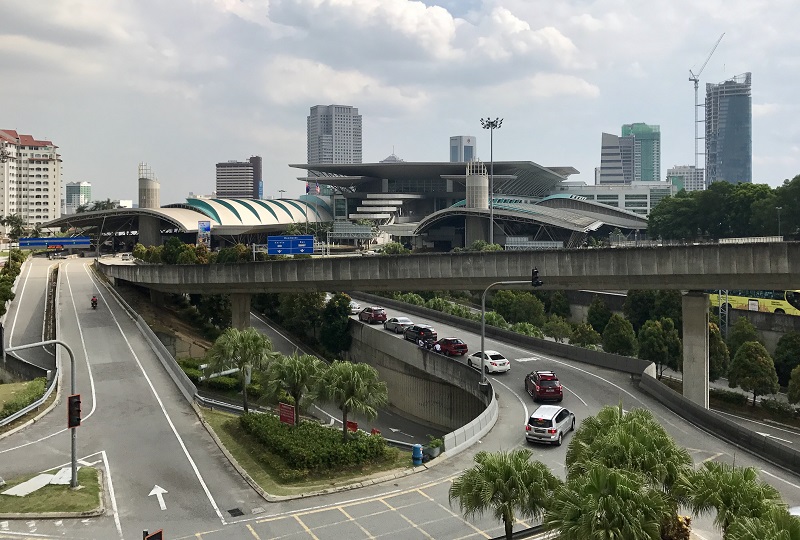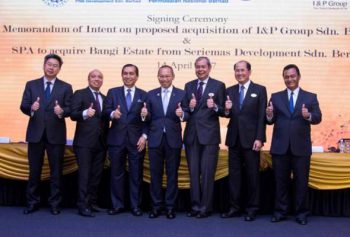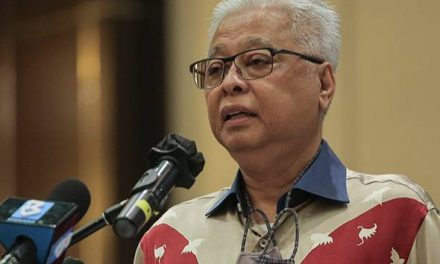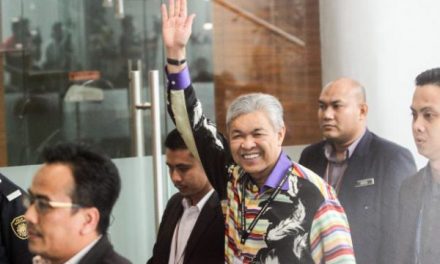Malaysia, Singapore discuss border reopening
Malaysia is now in discussion with Singapore over the possibility of opening up the borders of the two countries in stages, Foreign Minister Datuk Seri Saifuddin Abdullah said. One of the matters being raised was the likelihood of allowing daily commute between the two nations. “Nevertheless, it is a priority for the government to continue the discourse with Singapore on the gradual reopening of the border, depending on the current health situation. “This includes the proposed daily cross-border movement known as Daily Commuting Arrangement (DCA),” he said. Should this happen any time soon, Saifuddin said it would open up the possibility of more cross-border travels with other countries including Thailand. (NST Online)
Circuit breaker measures considered for Malaysia – Khairy
The Health Ministry is mulling to implement containment measures in an event where an area records a surge in Covid-19 infections. Health Minister Khairy Jamaluddin said although the measures, similar to the circuit breaker measure in Singapore to curb infections, have yet to be finalised, they were expected to be implemented as Malaysia transitions into the pre-endemic phase. “What’s important is that we want to avoid a full-scale lockdown or movement restriction across the country, but there must be a quick circuit breaker to stop the outbreak of infection,” he said. (NST Online)
Govt to ensure balanced development in 12MP
The Government will ensure balanced development across regions and States through the 12th Malaysia Plan (12MP). Minister in the Prime Minister’s Department (Economy) Datuk Seri Mustapa Mohamed said the Government will be focusing on efforts to reduce the development gap between the regions to ensure equitable prosperity for the people. “This is based on the Shared Prosperity Vision 2030 and in line with the Malaysian Family spirit,” he said. Mustapa said the Government will continue to focus on the development of the nation’s six poorest States (Kedah, Kelantan, Perlis, Terengganu, Sabah and Sarawak) to address the income gap between the regions and States, as well as the urban and rural areas. “The Government will also be facilitating access to education, healthcare and housing, improving the quality of life of the urban poor, especially in the People’s Housing Programme (PPR),” he added. “Additionally, the integration of database related to poverty eradication and social assistance will be done through the development of the Social Protection Database (PDPS), which is expected to be completed within one to two months,” he said. (The Edge)
Lynas given until March next year to build permanent disposal facility
Minister of Science, Technology and Innovation Datuk Seri Dr Adham Baba said that Lynas Corp was given until March next year to construct a permanent disposal facility (PDF) for their Rare Earth Mine in Pahang. He said that the Australian company had submitted environmental impact assessment (EIA) and regulatory impact assessment (RIA) reports to the Atomic Energy Licensing Board (AELB) earlier this month for the matter. “Lynas has already submitted two EIA and RIA reports and has reached the AELB desk in September and needs to be completed by the end of December and we allow until March next year,” he said. The company said the Malaysian government decided to provide an extension because it recognised the constraints presented by the current Covid-19 situation. (Malay Mail)
Melaka Waterfront Economic Zone a game changer for state’s development, says CM
Melaka Waterfront Economic Zone (M-WEZ) will prove to be a “big move” and a game changer for the state’s development over the next 25 to 30 years, Chief Minister Datuk Seri Sulaiman Md Ali said. He said the project has the potential to strengthen Melaka as a tourism-based state with the integration of new features such as an international tourism centre, a smart city-based commercial centre, Industrial Revolution 4.0, a marina logistics centre, a modern lifestyle cultural centre, and more. “We realised that Melaka was not included in any of the nation’s existing economic corridors such as Iskandar Development Region (Johor), Greater Kuala Lumpur/Klang Valley, Northern Corridor Economic Region, East Coast Economic Region and Malaysia Vision Valley (Negri Sembilan),” he said, adding that the M-WEZ development would complement existing economic regions and improve the socio-economic status of the local people. (Malay Mail)
Penang to enforce fortnightly Covid-19 tests at construction sites next month
The Penang Island City Council (MBPP) will introduce mandatory Covid-19 testing of workers at construction sites at least once every two weeks from October. MBPP Mayor Datuk Yew Tung Seang said all construction firms will be required to submit a report of their workers’ test results from each work site to the city council. Other than construction sites, Yew said the city council will also make sure its frontline workers and those who have to work physically in offices take the RTK tests every two weeks. On moving forward towards managing Covid-19 as an endemic, MBPP will also be training the management corporation (MC) and joint management bodies (JMB) of strata-titled buildings on the proper management of Covid-19 cases within their premises. (Malay Mail)
Tourism leaders planning to restart travel safely in Malaysia and nearby region
Tourism leaders in the region recently met to plan the restart and recovery of the travel sector across Asia and the Pacific during joint meetings organised by the United Nations World Tourism Organisation (UNWTO). The virtual meetings, which were held under the chairmanship of Malaysia and the Maldives, came on the heels of a challenging year as most borders remain closed throughout the region. UNWTO secretary-general Zurab Pololikashvili is optimistic that the tide will turn soon for the region’s tourism sector. “With the right policy measures and strong coordination, destinations can start safely welcoming back international visitors, thereby allowing tourism to deliver on its potential as a driver of recovery and inclusive growth,” he said. Member states focused on the coordination of policy measures and strategies to accelerate the recovery of tourism activities in the region. These include the phased lifting on travel restrictions and the introduction of travel corridors. (The Star)





